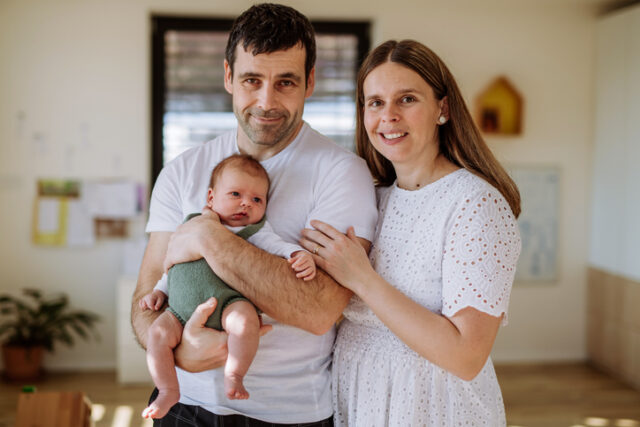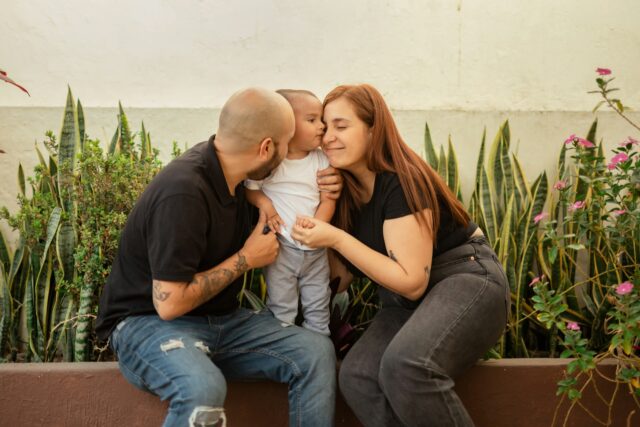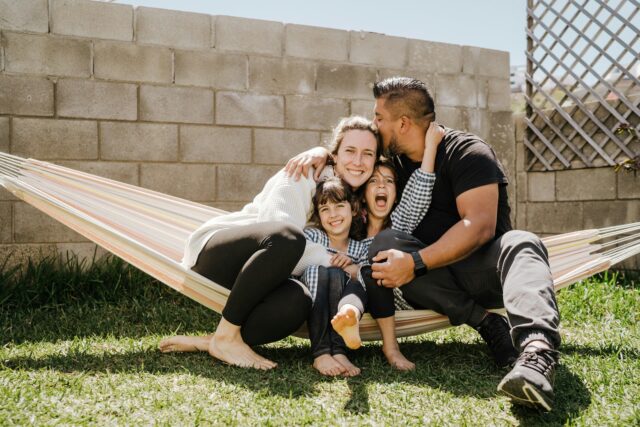Raising kids as a team is one of the biggest relationship challenges, and also one of the most important ones to get right.

That’s not to say you won’t sometimes make mistakes, but if you’re operating as a unit, and you have each other’s backs no matter what, you’ll be way more likely to raise happy, healthy, successful kids—and keep your relationship strong in the meantime. These habits in particular can make parenting feel less like a battle and more like a partnership, so they’re well worth adopting.
1. Talk about parenting styles before it turns into a fight.

You don’t have to agree on everything, but it helps to know where each of you is coming from. Talking through your parenting instincts, even if they’re different, keeps you from clashing in front of the kids later. It might be that one of you is more laid-back and the other leans towards structure. That’s okay. The goal isn’t perfect alignment, it’s understanding each other well enough to work as a team when it counts.
2. Present a united front even when you disagree.

It’s totally normal to have moments where you don’t see eye-to-eye. However, if one of you says no and the other swoops in with a yes, things can get messy fast, especially with older kids who pick up on everything. You can always debrief in private later, but in the moment, try to back each other up. It sends the message that you’re in this together, even if you’re still figuring things out behind the scenes.
3. Let each other parent in your own way.

Micromanaging how the other person handles things only creates tension. Even if they do bedtime differently or forget to cut the crusts off the sandwiches, it doesn’t mean they’re doing it wrong. Kids benefit from having two different parenting energies. Trusting your partner to figure things out in their own way builds confidence on both sides, and keeps you from carrying more than you need to.
4. Make space and time for regular check-ins.

Parenting moves fast. If you don’t make time to talk about what’s working (and what’s not), you can both end up running on fumes. Weekly or even monthly check-ins can work wonders. Use them to talk about discipline stuff, schedules, or just how you’re both feeling. It doesn’t have to be a serious sit-down every time. Even chatting during a walk or over coffee helps you stay connected.
5. Respect each other’s stress limits.

One of you might handle toddler tantrums like a pro while the other melts down halfway through breakfast, and that’s okay. Knowing each other’s thresholds makes parenting feel more balanced instead of one-sided. If your partner’s losing it, step in without judgement. If you need a breather, take one without guilt. Backing each other up in those hard moments matters more than always getting it “right.”
6. Laugh about the chaos sometimes.
 Source: Unsplash
Source: Unsplash Some days are just pure madness—spilled cereal, lost shoes, homework meltdowns, the whole lot. And if you can laugh about it together instead of spiralling, it’s a win. Humour helps you both remember you’re not alone in the mess. Sharing those “you can’t make this up” moments builds closeness, even when everything’s a bit of a disaster.
7. Divide responsibilities in a way that actually works.
 Source: Unsplash
Source: Unsplash Trying to split everything 50/50 on paper often leads to frustration. What works better is figuring out who’s good at what, who has time for what, and building around that. If one of you’s better with routines and the other’s great with spontaneous stuff, lean into it. The goal isn’t perfect balance; it’s creating a rhythm that doesn’t leave either of you constantly burnt out.
8. Admit when you mess up, and do it in front of the kids.
 Source: Unsplash
Source: Unsplash Parenting doesn’t come with a script, and nobody gets it right every time. Being able to say “I snapped, and I shouldn’t have” or “I could have handled that better” shows your kids (and each other) what growth looks like. It takes the pressure off trying to be perfect and builds trust between you as co-parents. Plus, it teaches the kids something important about being human.
9. Don’t keep score.

It’s easy to fall into the “I’ve done more than you today” trap, especially when you’re exhausted. The problem is that scorekeeping turns your relationship into a silent competition no one wins. Try to focus on what needs doing rather than who did what last. If things start to feel uneven, talk about it honestly instead of letting resentment build in the background.
10. Make time to connect as a couple.

It’s easy to get so caught up in the parenting zone that you forget how to just be partners. Even small moments, like watching a show together after bedtime or grabbing lunch without the kids, help you reconnect. You don’t need big date nights all the time. What matters is remembering you’re a team outside of parenting, too. That connection keeps everything else from falling apart when things get hard.
11. Let the other person have their moments with the kids.

Sometimes it’s tempting to step in when the other parent is struggling with a situation. However, letting them work through things with the kids helps build their confidence, and the relationship between them. They may not handle things the way you would, but that’s okay. Trusting them to figure it out their way creates space for growth on both sides and gives the kids a fuller sense of family.
12. Don’t correct each other in front of the kids.

It might seem small, but undermining your partner in front of the kids, even casually, eats away at your connection. It also makes it harder for kids to feel secure in your parenting. If you disagree with something, bring it up privately later. Having each other’s back in the moment shows the kids that the two of you are in sync, even when you’re not in full agreement yet.
13. Support each other’s parenting wins.

It feels good to be seen, especially when parenting can feel thankless. A simple “you handled that really well” or “I loved how you talked to them about that” goes a long way. It’s not just about encouragement; it’s about staying connected. Noticing the good moments keeps your bond strong and helps both of you feel like what you’re doing matters.
14. Share the mental load too, not just the tasks.

It’s not just about doing the school drop-offs or cleaning up after dinner. Thinking about doctor’s appointments, birthday gifts, and what’s in the fridge takes up space, and that invisible load adds up fast. Having open conversations about what’s on your minds, not just your to-do lists, helps keep things fair and less overwhelming. It also makes both of you feel more seen and supported.
15. Remember you’re on the same side.

When things get stressful, it’s easy to forget this. But at the end of the day, you both want the same thing: to raise happy, safe, loved kids. That’s your common ground, even in tough moments. Reminding yourselves that you’re in this together shifts the energy from blame to teamwork. It helps you pull together instead of apart, and that’s everything when it comes to parenting well together.




